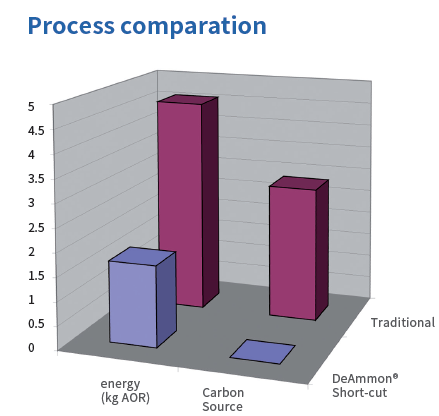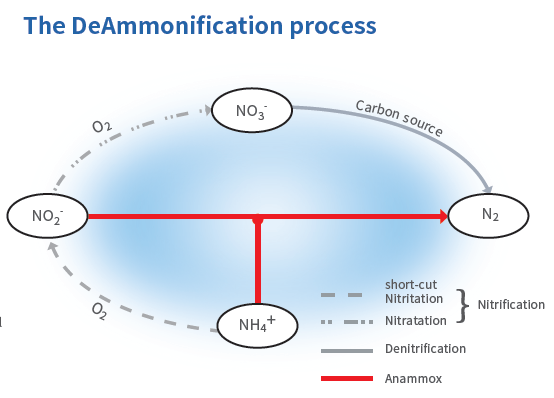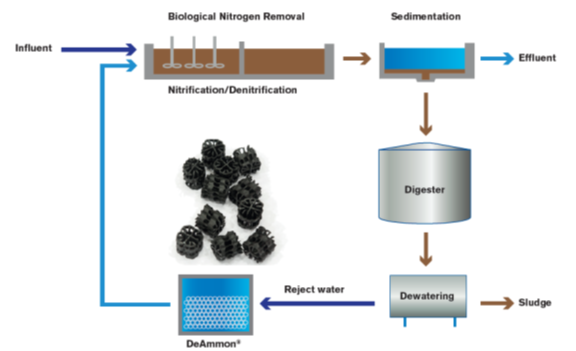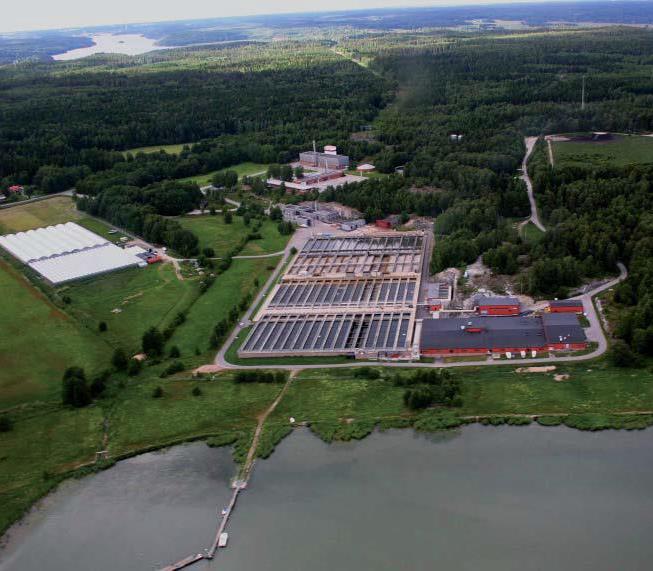DeAmmon® DeAmmonification process
The DeAmmon® nitrogen removal process is specially developed for high nitrogen concentration wastewater, such as the rejected water from digestion, and nitrogen-rich industrial wastewater. Compared to conventional nitrogen removal processes, the great advantage of DeAmmon® is the significantly lower oxygen consumption, and no need for external organic carbon. This process can easily be retrofitted into existing treatment plants.
DeAmmon® Features and Benefits:
- Low operation cost
- No addition of external carbon source, such as methanol or ethanol
- Reliable performance
- 80% removal of nitrogen
- Low sludge production


Reject water from digestion
The one-stage DeAmmon® plant is easy to operation and offers excellent process stability.
The Purac one-stage DeAmmon® technology is quite suitable for wastewater with high nitrogen concentration, up to 1500mg/l NH4-N, and low C/N ration. In a one-stage DeAmmon® plant, the anammox organisms grow on the surface of plastic carriers that are overgrow by biofilm containing the nitrification organisms. The nitrogen rich influent is intermittently aerated in treatment tanks with suspending carriers. This process is very stable to variations in influent flow and nitrogen content, and it has the ability to convert 90% of the ammonia to nitrogen gas.





